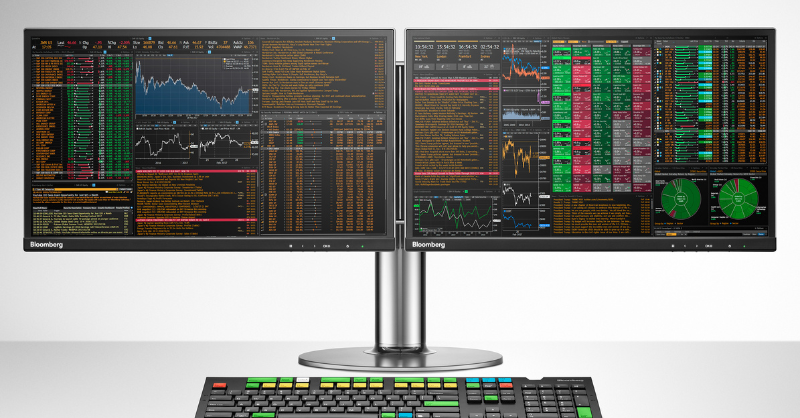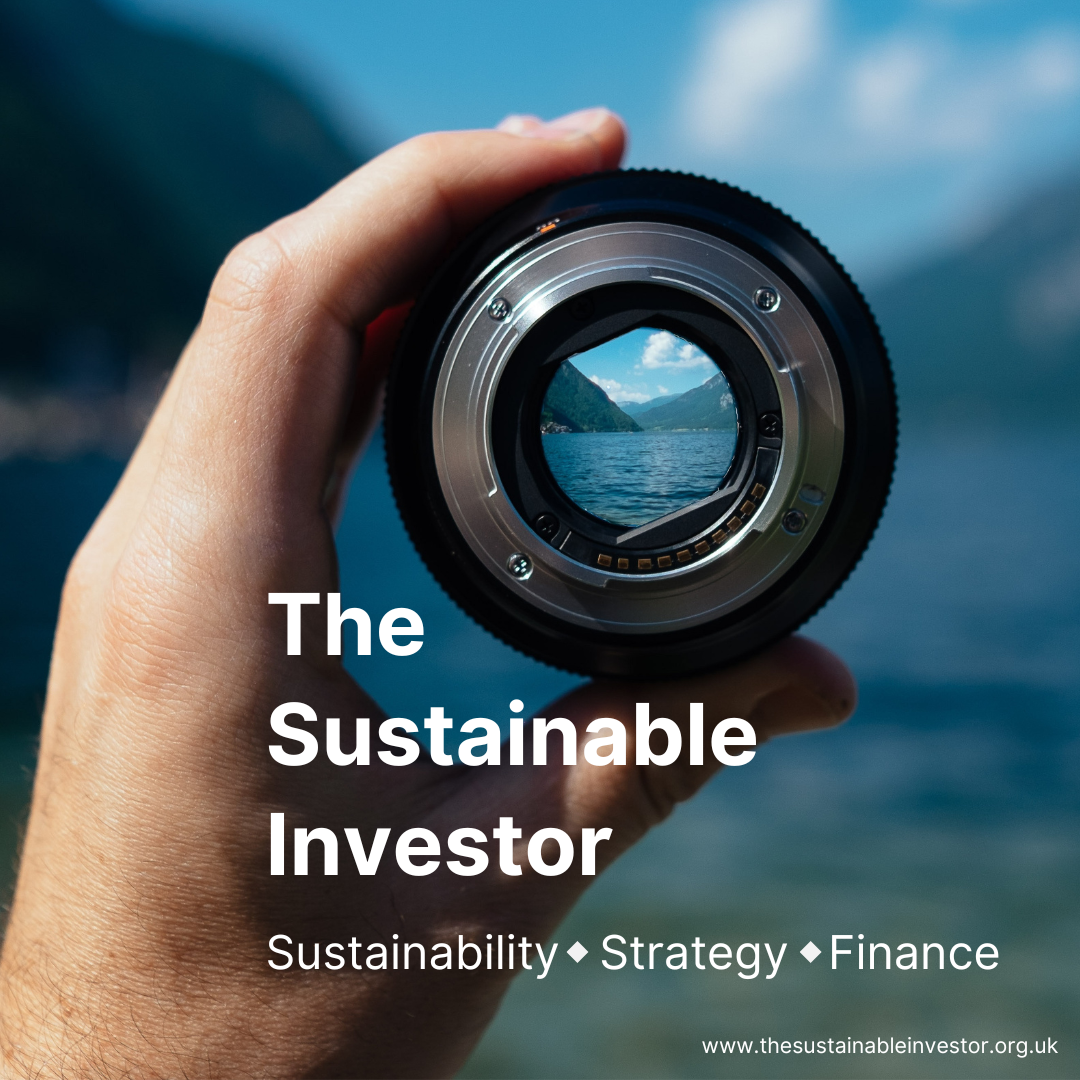
Sunday Brunch: Sustainability disclosures matter for traditional investors as well
"ESG doesn't need a specialized term, as that implies it's niche. Considering long-term factors isn't ESG investing; it's investing". Alex Edmans - The end of ESG December 2022
When I talk with many investors about sustainability disclosures, one common response is "my ESG team deals with that". But is that really the right approach?
No portfolio manager I know says 'I don't care about what the company discloses about its strategy' and they certainly don't say 'I am not worried about future capex and cashflows'. I argue that they should treat sustainability disclosures in the same way. To paraphrase the Alex Edmans quote above ...'sustainability is investing'.
So why might sustainability disclosures get treated differently by investors? One reason might be that companies mostly disclose alignment with the Paris Agreement, often via long term targets. And they frequently provide limited detail around what concrete actions they plan to take, and what the financial implications might be of the choices they have made. So, it can feel more of a values issue (ie ethics) than a financial one.
But the sustainability transitions will have financial implications. And, if investors and shareholders are not getting the information they need to make good investing decisions, the solution is not to 'look the other way'. Surely it's to insist on better disclosure?
And this applies to traditional investors, as much as it does to those who focus on sustainability.
If you want to read the rest and are not already a member...

Sustainability disclosures matter for traditional investors as well
It's pretty obvious that sustainability focused investors care about a company's sustainability disclosures. But what about everyone else?
To me, as an ex-portfolio manager, the answer to that question is clearly yes. All investors should care about sustainability related disclosures.
There are two reasons why I think this. The first starts with the understanding that the sustainability transitions, including the move to Net Zero, are going to happen. You can argue about the pace of change. And you might argue about who pays. But it's going to happen.
This means that companies need to anticipate and prepare. As investors, we need to understand what concrete actions the company plans to take. And the financial implications that they will have.
As Alex Edmans said "considering long-term factors isn't ESG investing; it's investing". And the sustainability transitions are a clear example of a long term investing factor.
The second reason is more subtle. It's my 'what if' question.
What if governments around the world get their act together and align their policies and regulations with the objectives of the Paris Agreement? So basically no more than 2 degrees, and ideally 1.5 degrees.
Yes, we are currently a way off this, but in much the same way that we expect companies to outline the possible financial consequences of expected legal actions, we also need them to set out what aligning their operations with the Paris Agreement might mean financially. You might not expect to see that reported as the central case - but it needs to be in the Notes to the Accounts.
What sustainability disclosures do we need?
As we highlighted at the start, we are not sure that investors are demanding the 'right' sustainability disclosures. What do we mean by 'right'?
In this context 'right' means giving us the information we need to properly evaluate the implications of the choices that the company has made.
The starting point is has the company set targets that are aligned with the Paris Agreement, and if not, why not? And then do they have a strategy to deliver the targets?
Let's take a real world example. Many global automotive companies have set out an aim of achieving net zero by 20XX. For some companies it's by 2040, and for others it's later (normally by 2050). The chart below is from the latest Transition Pathway Initiative Automotive sector assessment.
In this regard most automotive companies at least partly meet the first element of sustainability related financial disclosure. They have a Net Zero target.
So then we move down to the next level. Some companies have set out a high level how - an objective of a percentage of their total vehicle sales being EV's by a set date. So say, 50% EV's by 2035. That sounds like better disclosure than just a Net Zero target.
But what does this target really tell us? Is it enough to allow investors to fulfill their fiduciary duty ? And to be able to report back to their investors on their sustainability alignment?
I would argue not really. Sticking with the automotive example, what does the objective of 50% EV's by 2035 actually mean. And what assumptions lie behind the companies estimate of the financial implications?
I assume that an automotive company is only going to produce 50% EV's if there is sufficient demand. After all I don't know many companies that aim to make products they cannot sell. What happens if demand is soft, maybe because charging infrastructure is insufficient and/or the financial incentives are withdrawn? Or maybe governments shift the target dates out, giving the companies longer to hit their 50% by 20XX dates. What happens then?
What else should companies disclose.
So, as well as their Net Zero alignment, and their high level strategy, we also need to know an appropriate level of detail of what lies behind the targets. What are the underlying assumptions, what concrete actions do they intend to take, what are they leaving to others, and what investments are needed to deliver the actions?
In the case of the automotive sector, how reliant are the targets on government regulations? If regulations get relaxed, do the targets shift out as well ? When are the key decision points on new investment, and how will the transition from ICE production to EV's work, so that overall production efficiency is maintained?
And then of course there are the financial implications. What does it mean for investment and capex plans, how might the transition impact production costs, sales and operating margins. And what are the implications for the value of the companies current production facilities?
Only when we have all of this sustainability related financial disclosure can we make sensible investment decisions.
The role of the auditors is key!
However we cannot expect company disclosure to be too detailed. After all, some of the information will be commercially sensitive. Company's don't want to tell their competitors too much. And this is where the role of the auditor comes in.
If companies cannot disclose everything we need to know, then at a minimum we need to know that the auditor has reviewed the assumptions (including the consistency with other aspects of the strategy), and verified the reasonableness of them. And checked that the financial implications reported make sense.
In 1,200 words we have only been able to scratch the surface of this topic, so it's one that we will be coming back to in future blogs - digging deeper into what good sustainability related financial disclosure looks like, what is the role of the auditor, and later, what we should expect from directors.
Something a little more bespoke?
Get in touch if there is a particular topic you would like us to write on. Just for you.
Contact us
Please read: important legal stuff.